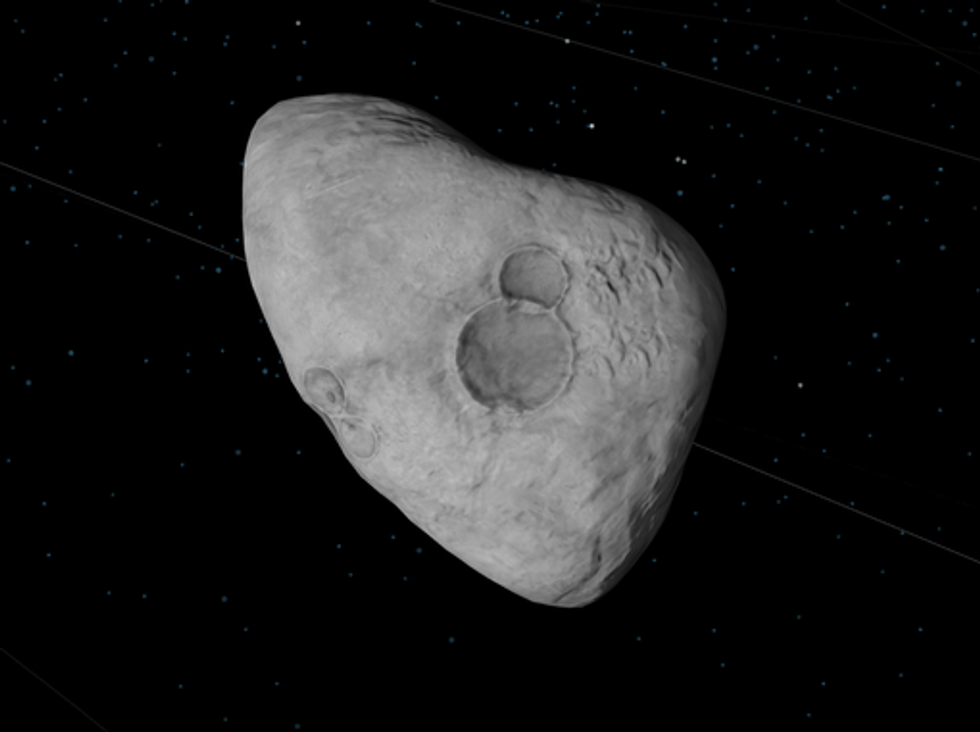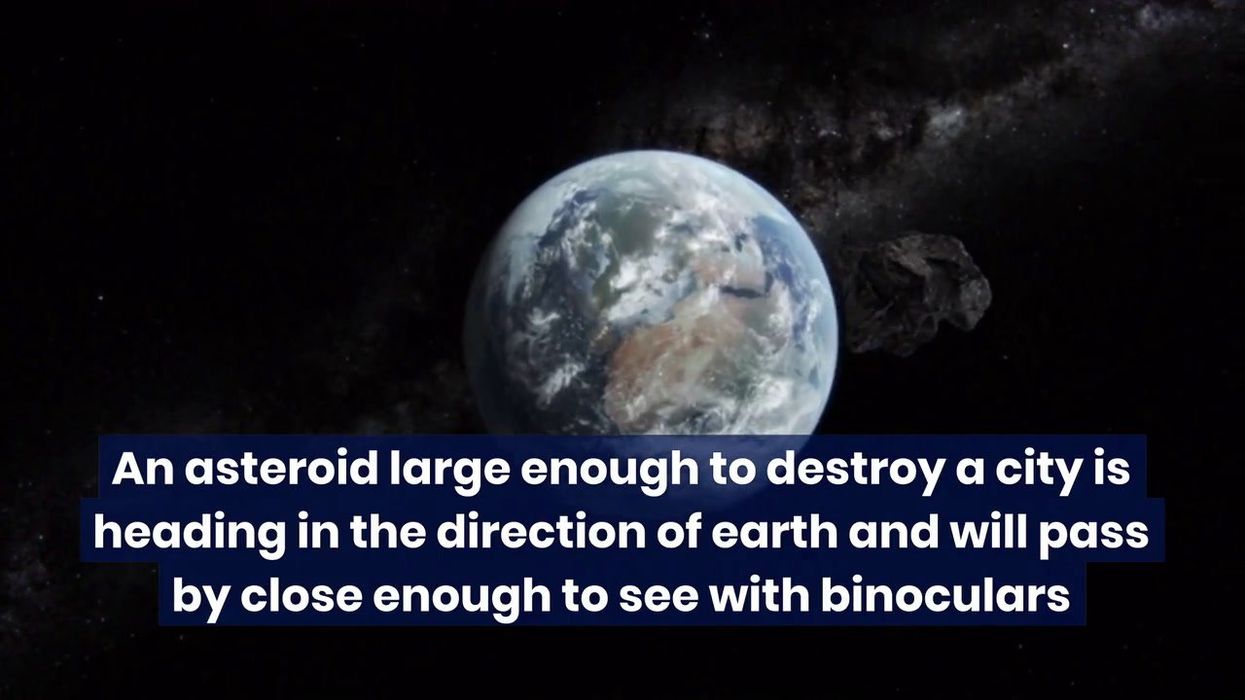Harry Fletcher
Mar 25, 2023
‘City Killer’ Asteroid Coming Towards Earth
content.jwplatform.com
Don’t look up, but there’s a huge asteroid slamming into the Earth’s orbit any minute now.
A massive celestial object is heading narrowly by our planet in a 'once in a decade' event. NASA has called the object 2023 DZ2 and it will pass by around 107,500 miles from Earth on Saturday evening, which is twice as close as the moon is to Earth.
Thankfully, we’re all safe. However, if the worst had happened and the asteroid had been on course to hit Earth, the impact would have been 214 times more powerful than the atomic bomb which was dropped on Nagasaki in 1945.
People first became aware of the 300ft-wide asteroid last month, after it was discovered by NASA's Asteroid Watch team.
Sign up to our new free Indy100 weekly newsletter
“A newly discovered #asteroid named 2023 DZ2 will safely pass by Earth on Saturday at 100K+ miles away,” the official account tweeted.
“While close approaches are a regular occurrence, one by an asteroid of this size (140-310 ft) happens only about once per decade, providing a unique opportunity for science.

“Astronomers with the International Asteroid Warning Network are using this close approach to learn as much as possible about 2023 DZ2 in a short time period."
Despite the relative proximity to Earth, the only place that amateur astronomers will be able to see the object will be in Southeast Asia.
It’s not the only asteroid to make headlines this year.
It was recently announced that the odds of a newly-discovered meteor smashing into Earth have dropped dramatically.
It’s just as well, too, as the asteroid named 2023 DW which was first spotted last month has the potential to take out an entire city.
It had previously been suggested that the meteor could have struck the planet on Valentine's Day 2046. However, the European Space Agency said this week that the chances of such an event happening have dramatically lowered since it was first observed [via phys.org].
Have your say in our news democracy. Click the upvote icon at the top of the page to help raise this article through the indy100 rankings.
Top 100
The Conversation (0)














